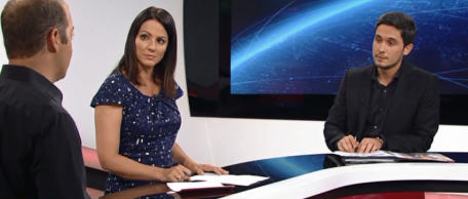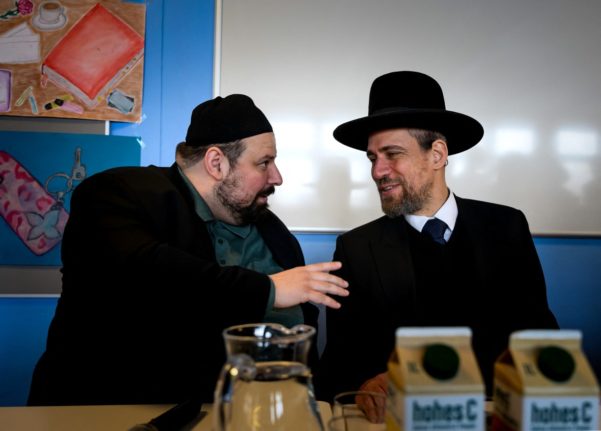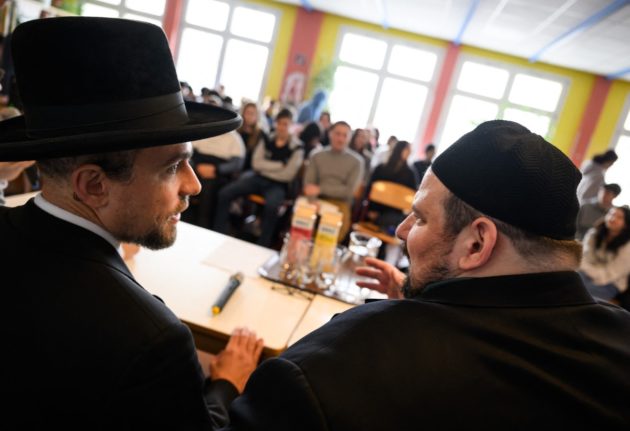Lisa Gadenstätter, who works for the national broadcaster ORF, was bombarded with comments such as “whore”, “mentally handicapped”, and threats such as “I’d hit her in the face,” and “hopefully the stupid whore will die”.
The comments appeared on the Facebook site of the UETD (Union of European-Turkish Democrats), as well as on a specially-created Facebook group page.
Some of the more threatening comments were deleted, but the majority remained and gained dozens of 'likes'.
The comments kicked-off after a discussion on ZiB 24 with studio guests Tamar Pixner from Vienna’s Jewish Community and Abdurrahman Karayazili from the UETD – who had organised a demonstration in Vienna against Israel and its military offensive in Gaza.
Karayazili avoided answering some of Gadenstätter’s questions – including whether he had links to the group that organised the recent attack on Israeli football players in Bischofshofen, and he refused to comment on photos that showed people with swastikas and Hamas flags at the anti-Israel demonstration in Vienna.
Pixner accused Karayazili of “arrogance” in deciding “who here is and isn’t a terrorist”.
When Gadenstätter asked Karayazili about Turkish Prime Minister Recep Tayyip Erdogan’s recent comment that the modern Israeli government was akin to the Nazis, Karayazili refused to answer any more questions, and then finally pulled off his microphone and stormed out of the ORF studio.
He later wrote on his Facebook page that he believed that “the editor whispering in the presenter’s ear is controlled by the Israeli lobby”. He also shared a photo which compared the Holocaust to the Middle East conflict.
The ORF responded to complaints about the programme with a statement that said: "Mr Karayazili was invited, as was his opposite, to answer questions – which he refused to do.
Mrs Gadenstätter asked Mr Karayazili to respect the rules of a studio conversation. But he made it impossible for our viewers to follow the ‘conversation’. We gave Mr Karayazili the chance to broadcast his views, live and unedited, but he missed out on this opportunity.”
Meanwhile, Interior Minister Johanna Mikl-Leitner and Justice Minister Wolfgang Brandstetter are working on tougher laws to combat "hate crimes" – triggered by recent anti-Semitic posts on Foreign Minister Sebastian Kurz's Facebook page.




 Please whitelist us to continue reading.
Please whitelist us to continue reading.
Member comments